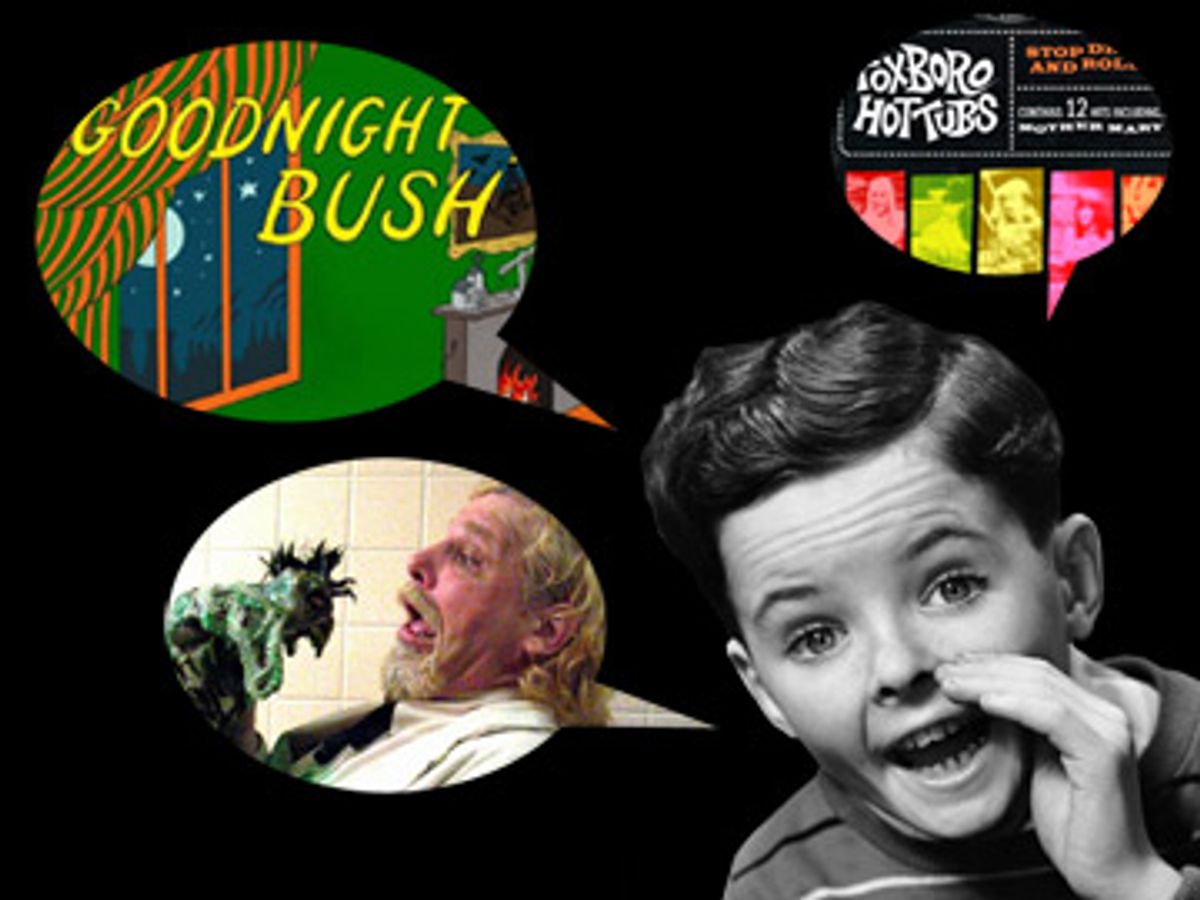 "Brothers & Sisters" on ABC
"Brothers & Sisters" on ABC
During its season finale on Sunday at 10 p.m. EDT, the ABC drama "Brothers & Sisters" will air one of the first gay weddings in U.S. television history. The marriage of acerbic lawyer Kevin Walker (Matthew Rhys) to his perky boyfriend, Scotty Wandell (Luke MacFarlane), promises to provide a balance among network-TV gay weddings of the past: "Northern Exposure" (set in a town named for a lesbian) soberly got there first in 1994; and Roseanne Barr made her version into a pageant of stereotypes in 1995, an approach that probably looks funnier after the success of shows like "Will & Grace," "Queer as Folk" and "The L Word." "Brothers & Sisters" is written by real gays, erstwhile New York playwrights like Jon Robin Baitz and David Marshall Grant, who trade in ambiguity and angst, so these hasty nuptials probably won't have a sugar coating. Motivated by health insurance as much as romance, Kevin and Scotty seem mismatched. They've broken up once before, and the previous week Kevin spontaneously proposed in one of the most awkward, backhanded speeches ever. Essentially, he complained to Scotty about how insane his family was, then told his sweetly gullible B.F. that he belonged in that family. With Kevin's weepy mom (Sally Field) and creepy brother-in-law (Rob Lowe) in attendance, this event will bridge the gap between holy matrimony and holy terror. -- James Hannaham
"The Film Club: A Memoir" by David Gilmour
Canadian film critic, TV personality and novelist David Gilmour found himself unemployed in his 50s, with an alienated 17-year-old son who was flunking out of school. Gilmour's solution was to invent a radical variety of home schooling. Jesse could drop out and live with him rent-free, on one condition: They had to watch three movies a week, of Gilmour's choosing, and talk about them. No homework, no writing assignments. One of the products of this experiment is Gilmour's marvelous new book "The Film Club," a funny, edgy and self-deprecating memoir that's unlike any parenting book you've ever read. (It has plenty of sharp little insights into movies too.) What happens to Jesse? That'd be cheating. Let's just say he goes into the world having seen "The 400 Blows," "A Fistful of Dollars" and "Showgirls" -- that's got to count for something. -- Andrew O'Hehir
 Juan Antonio Bayona's "The Orphanage"
Juan Antonio Bayona's "The Orphanage"
Just out on DVD, this deeply spooky Spanish film is about a wife and mother preoccupied with turning the abandoned seaside orphanage where she grew up into a home for children with special needs. Her own son acquires a set of troubling imaginary friends, and then disappears mysteriously. The emotional hinge of this tale is the natural/unnatural intensity of maternal love; as the heroine homes in on her (perhaps delusional) pursuit of the truth, she becomes ever more isolated and paranoid. Like all great ghost stories, "The Orphanage" takes place on the crumbly boundary between madness and the supernatural, which makes its strangely heartwarming conclusion the biggest surprise of all. -- Laura Miller
HBO documentary "Hear and Now"
What would it be like to hear for the first time after a lifetime of being deaf? Would the sound of birds chirping or an orchestra playing be enjoyable, or would it just present itself as a disorganized, disconcerting cacophony? These are the questions faced by Paul and Sally Taylor, who at age 65 decide to get cochlear implants. Their daughter, filmmaker Irene Taylor Brodsky, captures their frustrations and challenges in her 2007 Sundance documentary "Hear and Now" (airs on HBO at 7:30 p.m. EDT Sunday, check listings), taking us with them on a fascinating and sometimes bewildering trip to the unknown. -- Heather Havrilesky
 The Kooks' "Konk"
The Kooks' "Konk"
A year or so back, when a friend played "She Moves in Her Own Way" off the Kooks' 2006 debut "Inside In/Inside Out," I nearly fainted with delight. That small packet of effervescence may not have been about much more than being a kid in a rock band and still having your share of girl troubles, but that's plenty right there: You don't have to be young to make great pop music (and the Kooks are young), but the whole point is to capture the spirit and energy of youth. The Kooks take a big step forward with their second album, "Konk" (named after the studio owned by the Kinks' Ray Davies, where the album was recorded), which feels less like a jumble of random, albeit catchy, pop songs than a well-rounded volume with a beginning, a middle and an end. But it would be doing the band a disservice to call the LP "more mature." Lead singer Luke Pritchard's voice maintains that aura of youthful desperation, as if he still hasn't gotten over the tragedy of heartbreak in the schoolyard. The Kooks' M.O. is to color their way through romantic confusion with guitars instead of crayons. -- Stephanie Zacharek
Mitchell Leisen's "Midnight"
Claudette Colbert refused to be photographed on her right side; John Barrymore had to read his lines off cue cards; director Mitchell Leisen was at constant war with his screenwriters, Billy Wilder and Charles Brackett, and even committed the unpardonable sin of changing their words. (Wilder would later become a director in protest.) By all rights, the 1939 comedy "Midnight," just out on DVD, should have been a disaster. Instead, it's one of the high points of Golden Age Hollywood, a silken sex farce that gets funnier as it goes along and makes today's rom-coms look lumpen and cloddish. As a cuckolded aristo, Barrymore slays with understatement, and Colbert, in a wised-up variant on Cinderella, is a purring bombshell -- even at three-quarters angle. A real treat. -- Louis Bayard
******
What's on your list to read, watch, do this week? Share your recommendations with other readers.
******
Catch up on recent Salon Critics' Picks.



Shares